Episodes
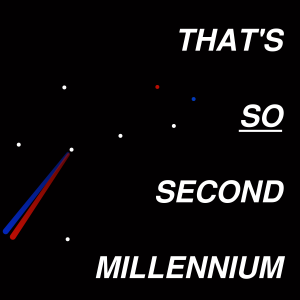
Monday Nov 21, 2022
Ep 146 - TSSM Takes a Break
Monday Nov 21, 2022
Monday Nov 21, 2022
- The co-hosts announce that the TSSM podcast, now posting our 146th episode, will begin a hiatus, but all programs and show notes will continue to be archived and accessible.
- This episode allows Dr. Paul Giesting and Bill Schmitt to look back on their four-and-a-half years of interviews and discussions seeking a greater synthesis of knowledge: an exploration of science and religion, philosophy and spirituality, neuroscience and quantum physics, policies and principles, history and the future, to better understand ourselves and the values and virtues in our lives. Our curiosity and concerns are grounded in our experiences as cradle Catholics, a confidence that faith and reason can grow together as essentials for problem-solving wisdom, and a desire to honor the Church a central source of guidance and continuing growth.
- Our first episode was posted on April 2, 2018, more than four-and-a-half years ago. We have welcomed a long list of well-known guests with expertise in a variety of fields, seizing the opportunity for rigorous but highly accessible, interdisciplinary and inspirational, conversations that transcend silos of specialization. We are grateful for the grand adventure of pursuing truth and reality, both visible and invisible, with the scholars and thought-leaders who shared their insights.
- That’s So Second Millennium was the first podcast to provide structured news coverage and commentary on the conferences and lectures of the Society of Catholic Scientists, and we interviewed a number of SCS members. Both Paul and Bill have been members of the growing, international organization.
- Paul, who holds a PhD in Geology from the University of Notre Dame, presented a lecture on uranium and nuclear power at the SCS 2022 conference in Chicago.
- In this episode, we made references to Billy Joel’s “We Didn’t Start the Fire” and to “Sing God a Simple Song”—from Leonard Bernstein’s
- We talked about Wyoming Catholic College, where Paul is on the faculty, and we talked Holy Cross College, where Bill taught as an adjunct professor for three semesters before moving from South Bend, IN, to Troy, NY, in 2022. Both solidly Catholic colleges, we agreed, excel in their efforts to integrate the different aspects of our humanity and the various forms of knowledge within the hearts and minds of students.
- Paul and Bill are inveterate Catholic communicators and educators. Learn more about Paul’s background in teaching, consulting, and public service. Learn more about Bill’s life as writer-editor, broadcaster-blogger, and author.
- Here are some of the people we have been privileged to interview: SCS president Stephen Barr; planetary scientist Jonathan Lunine; astrophysicist and astronomer Brother Guy Consolmagno, SJ; theologian Paul Seongh Chung; Magis Center president and EWTN series host Father Robert Spitzer, SJ; astrochemist Karin Oberg; neurobiologist Maureen Condic; speaker-evangelist Deacon Harold Burke-Sivers; pro-life experts Richard Doerflinger and Christopher Bell; geologist Anne Hofmeister; cybersecurity expert Michael Cloud; psychologist Darcia Narvaez; business professor-author Anjan Thakor; and soul and spiritual musician Micki Miller. Learn more about them in the show notes accompanying their TSSM episodes. Thanks also to our friend, composer and performer Vin Marquardt, for writing our podcast’s closing theme for a long time, “Igneous Grok.”
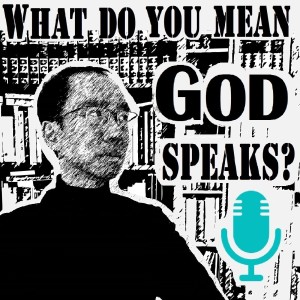
Monday Oct 17, 2022
Ep 145 - Faith Journeys That Make a World of Difference: Paul Seungoh Chung
Monday Oct 17, 2022
Monday Oct 17, 2022
- Paul and Bill welcomed Paul Seungoh Chung to discuss how people can converse constructively about God despite their different backgrounds and different faith journeys. Dr. Chung, who has taught Christianity and science courses at the University of Toronto, is the author of God at the Crossroads of Worldviews: Toward a Different Debate about the Existence of God (University of Notre Dame Press, 2016).
- He also produces a podcast, “What Do You Mean God Speaks?”—a presentation of his ongoing research and reflection for a second manuscript. His compelling comments, citing Bible stories and other resources, aim to follow up on the book’s hopeful message: When two persons seeking God along different paths find a crossroads where they can share key ideas, how do they take the next steps to pursue meaning and purpose through further spiritual and intellectual inquiry? The crossroads “sets the frame to start the journey,” he explained in our interview.
- Dr. Chung holds a Ph.D. in the philosophy of religion from Fuller Theological Seminary. He earned a Master of Religion degree from Wycliffe College, an evangelical graduate school rooted in the Anglican tradition at the University of Toronto. As an undergraduate at the University of Toronto – University of Trinity College, he received a Bachelor of Science degree in psychology and philosophy.
- He has served as a pastor at local churches in Toronto and has worked with a mission organization, Canada Mosaic Christian Alliance.
- Dr. Chung’s references during our conversation included the philosophical insights of Alasdair MacIntyre at the University of Notre Dame, the concept of “paradigm shifts” described by philosopher of science Thomas Kuhn, and the atheistic argumentation of physicist Stephen Hawking.
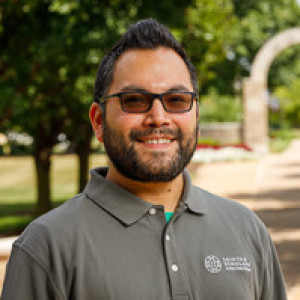
Thursday Jun 30, 2022
Ep 141 - Louis Albarran and the Faith of Real People
Thursday Jun 30, 2022
Thursday Jun 30, 2022
- Paul and Bill spoke with Louis Albarran, associate professor of theology at Holy Cross College in Notre Dame, IN. Albarran holds a master’s degree and a Ph.D. from the University of Dayton, and he specializes in the connection of religion, culture, and the physicality of devotional practices, with a focus on the Latino Catholic culture.
- Albarran spoke of the story of Our Lady of Guadalupe, as told by the Aztec people in their own language. The name of this narrative is Nican Mopohua.
- Albarran spoke of the Dayton school of thought regarding the meaning of Catholic devotions for culture. He referred to Thank You, St. Jude, written by Robert Orsi. [Paul cannot help adding a reference to St. Jude by Brian Setzer.]
- Currently reading: Making Culture by Andy Crouch.
- The annual “Saints and Scholars” summer program for high school students on the Holy Cross College campus is directed by Albarran.
- Peter Kreeft and Christopher Baglow offer notable perspectives on the compatibility of science and religion.
- Holy Cross College’s Moreau College Initiative grants degrees to prisoners.
- William Cavanaugh wrote about the wars of religion and the rise of the nation-state. Peter Kreeft wrote a condensed Catholic catechism. Kenneth Miller wrote Finding Darwin’s God. Aldous Huxley wrote Brave New World.

Saturday Apr 30, 2022
Ep 139 - Pondering Big Issues Powered by Uranium
Saturday Apr 30, 2022
Saturday Apr 30, 2022
-
In this episode, Paul and Bill situate themselves geographically, updating each other on their latest activities and changes in locale. Paul is on a medical mission to Billings, Montana, at the moment. Bill has moved from South Bend, where he was an adjunct professor at Holy Cross College, to Troy, NY, the hometown of his wife.
-
Uranium mining is on Paul’s mind during his brief departure from Wyoming Catholic College in the small town of Lander. As a PhD geologist, Paul will make a presentation on the modern-day considerations of uranium mining and nuclear power at the 2022 conference of the Society of Catholic Scientists. The conference will be held on the first weekend of June at Mundelein Seminary near Chicago. (Brother Guy Consolmagno, SJ, a consecrated brother in the Jesuits and a distinguished astronomer, will be honored by the SCS this year with its St. Albert the Great Award.)
-
The inconveniences of uranium, says Paul, who has studied it since his graduate studies at the University of Notre Dame, stem from its undeniable value for power generation—and some characteristics he described as compellingly “weird.” He takes us on a professor’s tour of the periodic table and the uranium mining regions near his campus.
-
Kazakhstan and Russia are key sources of uranium. In-situ leaching is a growing source for uranium elsewhere in the world, including in the US.
-
Every state regulates uranium and any mining activities. For example, Texas has a Commission on Environmental Quality. There is a complex history of regulation of uranium and nuclear energy at both the state and federal levels.
-
Paul referred to Bill’s membership in the international Secular Franciscan Order.
-
Paul offers a survey of opinions and alternatives in energy policy for the Earth. For a very recent and well-informed video treatment of sustainable energy choices for the future, see “Can We Cool the Planet?” at PBS’s NOVA series website.
-
India is probing possibilities for thorium as a source of nuclear energy. China is staking much of its energy future on nuclear power. In the US and elsewhere, politicians must get more serious about addressing crucial, conflict-ridden challenges, such as the storage and reprocessing of uranium.
-
A note: Paul recommends the episodes on Nietzsche and Epicurean philosophy from the “Food 4 Thought” podcast, presented by Jonathan Kutz, which covers philosophy and science from Christian perspective. It’s a natural for fans of “That’s So Second Millennium.” You can access “Food 4 Thought” on several platforms, including Anchor and Audible.
-
Cover photo: Yellow needle-like crystals of studtite ([(UO2)(O2)(H2O)2] · H2O) on flat orange crystals of becquerelite (Ca(UO2)6O4(OH)6 · 8H2O). Ex Gilbert Gauthier, via Adriana & Renato Pagano. Collection and photo by Gianfranco Ciccolini, as seen at mindat.org.
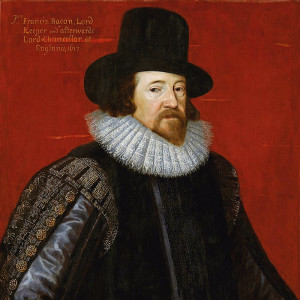
Monday Feb 28, 2022
Ep 137 - Francis Bacon and the New Organon
Monday Feb 28, 2022
Monday Feb 28, 2022
As the emcee noted at a concert here in Lander, a Musical History Tour, the Renaissance--the period when Europe revived its intellectual life by re-evaluating the writings of the Hellenistic past--ends around the year 1600, give or take. By that time, the focus had shifted toward going beyond the ancients instead of merely revisiting their achievements. This shift in focus happened on a different schedule in different fields, to be certain. Music may have been well ahead of the ancients already in the high medieval period. The Scholastics, and indeed their Arabian predecessors, while firmly rooted in Aristotle and the Neoplatonists, were already progressing beyond those foundations in the thirteenth century. On the other hand, painting and sculpture may not have outstripped the Greeks and Romans until the nineteenth century.
In any case, the seventeenth century would be the one in which Greek mathematics and Aristotelian natural philosophy gave way precipitously to new approaches. Algebra, lurking in the background of Greek thought and poking its head above the canopy in Arabian and Italian mathematics, would finally spawn analytic geometry and calculus. The focus and methods of natural philosophy would shift in many ways, including the use of mathematics and a great increase in the number of people collecting observations and conducting experiments and discussing their results with others. The existing sciences of astronomy, mechanics, botany, and zoology would be transformed, and chemistry and geology would be born outright. Inventions like the telescope and microscope would begin to reveal unsuspected layers of richness in the universe.
-Bacon: bio and politics
-The Reformation had to attack Scholastic *theology* but the universities continued to be heavily Aristotelian
-Aristotle and the distinction between philosophy and science that would be inverted by the 19th century
-Aristotle's focus on deduction and Bacon's polemical critique of the syllogism: "The New Organon"
-The role of induction and statistical reasoning; Bacon's blind spot for mathematics and his tables
Image: Francis Bacon by Paul van Somer, courtesy Wikimedia (By Paul van Somer I - pl.pinterest.com, Public Domain, https://commons.wikimedia.org/w/index.php?curid=19958108)
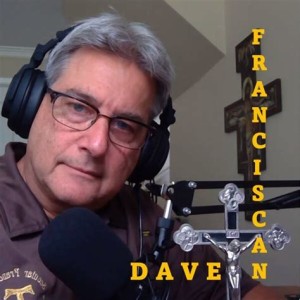
Monday Nov 22, 2021
Ep 134 - Bill on Journalism and Truth with Franciscan Dave
Monday Nov 22, 2021
Monday Nov 22, 2021
David Seitz, OFS, is a long-time professed member of the Secular Franciscan Order who holds an M.A. in theology from Sacred Heart Seminary in Detroit. He has written a book, available on line, called Come Let Us Worship: Reflections on the Words and Prayers of the Mass. He produces podcasts, videos, blogs, and speaks publicly, offering reflection for spiritual growth based on the life and works of St. Francis of Assisi. Find him at tauministries.com and, on YouTube, look for his nickname, Franciscan Dave.
Bill, also a Secular Franciscan, recently appeared on Dave's podcast, and I spoke with Bill about that conversation regarding journalism and virtuous communication. We discuss whether missionaries and scientists are also journalists and the spiritual value of seeking and spreading truth. Be sure to find their original conversation at Dave's site.

Monday Sep 13, 2021
Ep 132 – The Long Road to Mathematical Physics
Monday Sep 13, 2021
Monday Sep 13, 2021
A solo episode from Paul today inspired by the content of Wyoming Catholic College’s Deductive Reasoning in Science course (SCI 301).
- Greek arithmetic and the Pythagoreans
- The crisis of incommensurables (irrational numbers)
- The triumph of geometry over arithmetic
- Emphasis on axiomatic systems and proofs: Euclid
- Archimedes: physics within the Euclidean paradigm
- Aristotle and the medieval: qualitative and categorical accounts of motion
- The long reach of ancient methods and paradigms
- Galileo and his big ideas, shaky proofs, and tedious Euclidean methodology
- 16th century algebra and the need for negative numbers to simplify the cubic equation
- Galileo’s multiple cases of proportions of times, spaces, speeds in the Euclidean paradigm
- Overturns in algebraic notation and the advent of analytical geometry in the 17th century
- The looming role of calculus in Galileo’s attempts to argue by means of infinite parallels
- Imaginary and complex numbers in the solution of cubic equations with real roots, real physical problems
Sunday Aug 08, 2021
Bonus Episode - WOFI Faith & Science Summit
Sunday Aug 08, 2021
Sunday Aug 08, 2021
Word on Fire will be holding a Faith and Science Summit August 9-12 (starting tomorrow!). It will feature at least nine speakers, including the SCS' own Jonathan Lunine and Karin Oberg.
Among the topics discussed will be
- The history of the Church and science, including a wealth of details that get glossed over by the "conflict hypothesis"
- Specific coverage of what went wrong between the Pope, cardinals, and Galileo, and why that's far from a typical example of how the Church treats scientists
- The counterexample of George LeMaitre
- Theological motivations *for* doing science from the perspective of the Christian faith
- Insights from science that have enriched our appreciation of creation, the physical universe, and our own human origins
- Catholic theology and speculation about the possibility of extraterrestrial life
Find out more at:
https://wordonfire.institute/faith-and-science-summit
If you're a Word on Fire Institute member:
https://wordonfire.institute/faith-and-science-summit-wofimembers
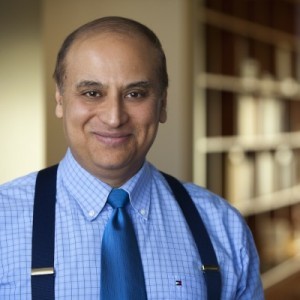
Monday Jul 12, 2021
Episode 129 - Economics of Higher Purpose with Anjan Thakor
Monday Jul 12, 2021
Monday Jul 12, 2021
An intriguing interview with a business school professor from Paul's alma mater, Anjan Thakor of the Washington University in St. Louis Olin Business School. The point of departure for this episode is Prof. Thakor's book of the same title written with Dr. Bob Quinn, and the book was launched as an analysis of why Dr. Quinn left a prestigious faculty position at the University of Michigan to go start a church in Australia.
The book and our interview discuss what seems as if it should be common sense: people perform better when they believe what they're doing has a higher purpose than extracting paychecks and profit. Yet this common sense observation is now counter to decades of economic orthodoxy, both in the "practical" world and in academia, which focus on evaluating ways for employers to control and coerce employees using the tools of the market system. And it's not entirely surprising, since in many ways human nature is always poised to devolve into this style of interaction. Listen in and, if you're anywhere near as intrigued by this work as I was, read their book for more.
- Thakor co-authored The Economics of Higher Purpose: Eight Counterintuitive Steps for Creating a Purpose-Driven Organization with Robert Quinn, business professor emeritus at the University of Michigan.
- Thakor referred to a University of Michigan study of call-center workers. They came away with a higher sense of purpose—and effectiveness—after talking with students who had received scholarships based on fund-raising efforts in which the workers were participating. If you change a worker’s mental map for seeing their job, this affects their performance.
- Authenticity requires a business leader’s believable commitment to—and passion about—the organization’s higher purpose, Prof. Thakor said. He also referred to insights from Rabbi Jonathan Sacks about the importance of societal and organizational motivation stemming from a sense of covenant, not merely contract. Covenant entails a sense of shared purpose.
- Noted business executive Bob Chapman says 88 percent of American workers say they want a sense of higher purpose but don’t feel it is integrated in their work life. Thakor said his own research shows that employees whose companies have a sense of purpose are more likely to describe a sense of purpose in their lives—a spillover effect.
- The commitment to purpose must be top-down. Then, it cascades through the organization if you help employees learn and absorb what it means for them and their job, Thakor said.
- Harvard Business Review had a special issue on the importance of a sense of purpose.
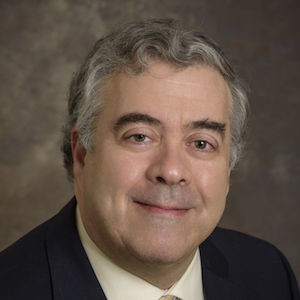
Monday May 31, 2021
Episode 126 - Society of Catholic Sciences Preview with Stephen Barr
Monday May 31, 2021
Monday May 31, 2021
- Paul and Bill welcomed Stephen Barr, Ph.D., president of the Society of Catholic Scientists (SCS), for a return visit to TSSM. Dr. Barr, a theoretical particle physicist, is emeritus professor in the Department of Physics and Astronomy at the University of Delaware. We talked with him about the Society of Catholic Scientists and the organization’s fourth annual conference, scheduled June 4-6, 2021, in Washington, DC.
- The growing membership of SCS now totals about 1,500 in multiple countries. The organization was founded in 2016 by Dr. Barr and five other scientists. Barr, author of Modern Physics and Ancient Faith, described the upcoming conference, which is titled “Extraterrestrials, AI, and Minds Beyond the Human.” See details of the conference The SCS has posted an announcement about live-streaming of conference talks for those who have not registered to attend in-person.
- The talks will be livestreamed at https://catholicscientists.org/conference2021. The schedule of talks can be found HERE. During the talks, questions for the speakers can be emailed in to questionsSCS2021@gmail.com. As time permits, some questions will be selected from those emailed in and posed to the speakers during the Q&A sessions.
- Barr gave an overview of the event and the speakers.
- One of the speakers, Prof. Lawrence Principe, Ph.D., will also be the recipient of the Society’s Saint Albert Award. The award, bestowed annually, is named for St. Albert the Great, patron saint of the natural sciences. Dr. Principe, a historian of science at Johns Hopkins University, has been a leading voice in dispelling the myth of a historical conflict between science and religion, Dr. Barr pointed out. A course titled “Science and Religion” is offered by Principe through the “Great Courses” organization and is available online.
- The conference’s keynote speaker is Christopher Baglow, Ph.D., director of the Science & Religion Initiative in the McGrath Institute for Church Life at the University of Notre Dame. Dr. Baglow, whose unique high school textbook Faith, Science, and Reason: Theology on the Cutting Edge has now been published in a second edition, was a guest on a previous episode of the TSSM podcast.
- Barr pointed out that, although the Society did not hold a conference in 2020, it greatly expanded its website, which now includes instructional materials about science and religion. One feature is a curated historical collection of concise bibliographies about important scientists who were practicing Catholics. Barr thanked his collaborator Andrew Kassebaum for that content, which is more authoritative than other online lists of “Catholic scientists.”
- The SCS continues to work to expand its services to teachers and students. The SCS website, at org, already contains numerous videos of talks from past conferences. Dr. Barr said the Society’s goals include facilitating wide-ranging intellectual and spiritual fellowship for Catholic scientists and helping to evangelize a secular culture that is infused with thoughts and messages prioritizing science and technology. The work of spreading the faith through science will increasingly use new media.
- Another form of evangelization is the Society’s support for Church celebrations of “Gold Masses” in numerous localities in the United States and elsewhere. Gold Masses, often planned as Votive Masses in honor of St. Albert the Great, are celebrated for members of the science professions. The Masses are part of the effort to increase the Society’s grass-roots activities through local and campus chapters.

